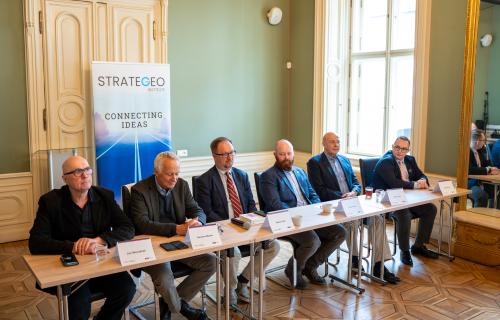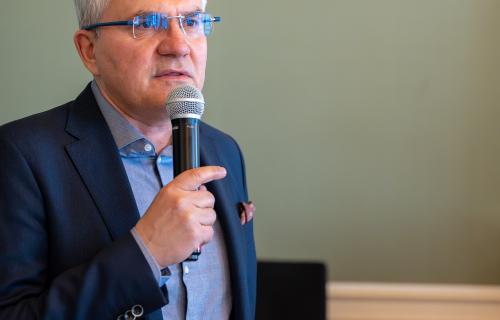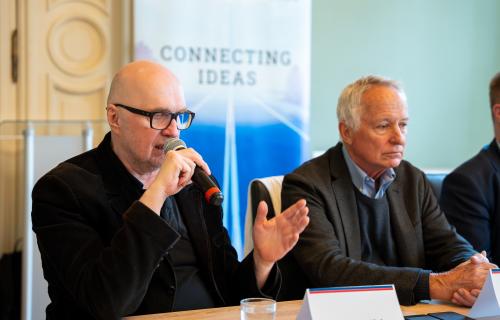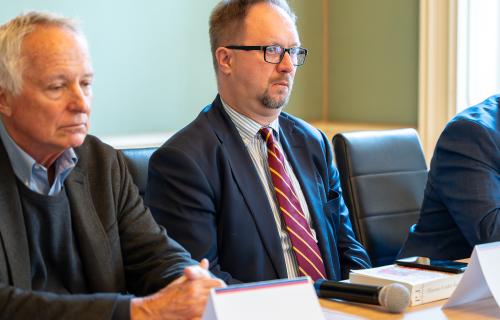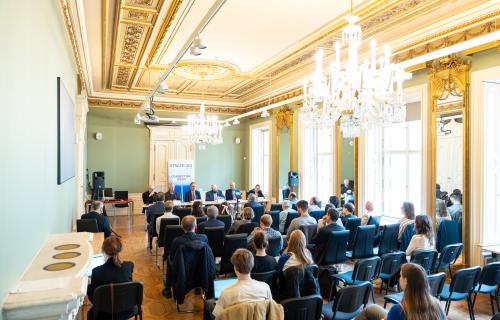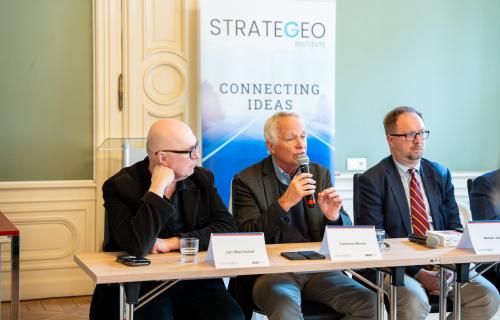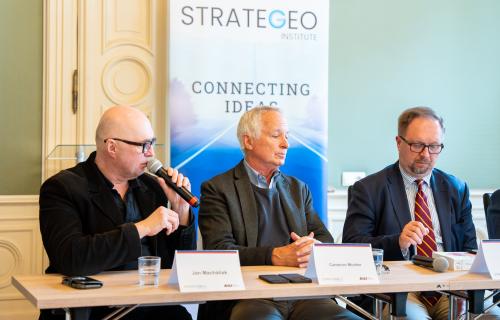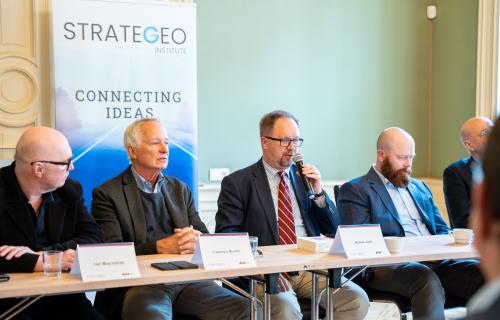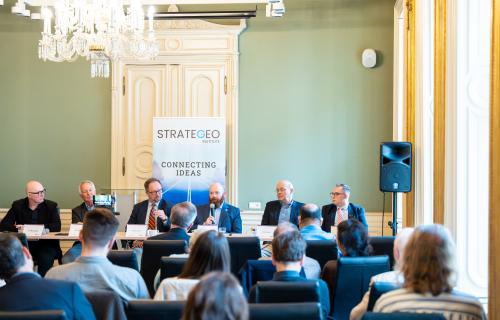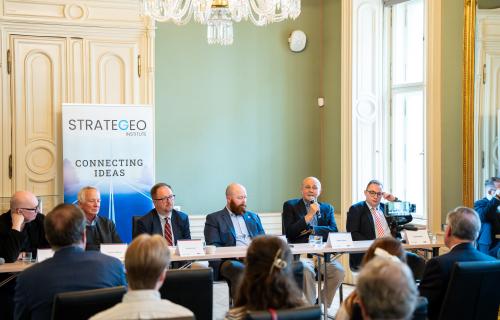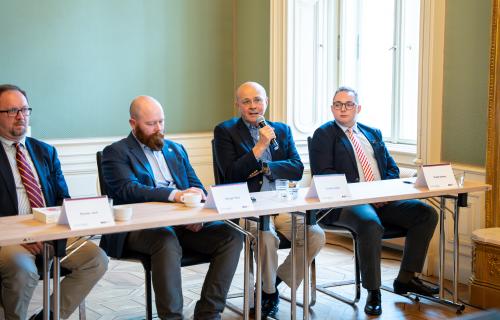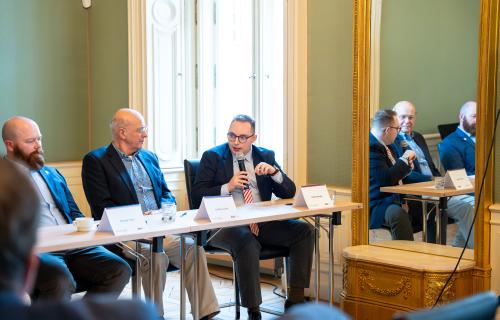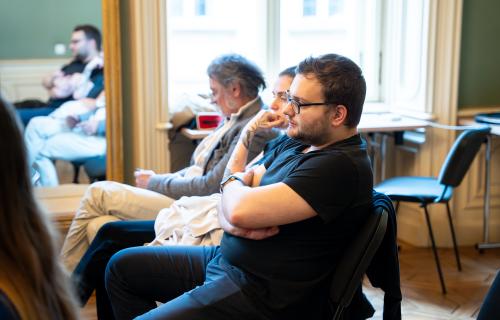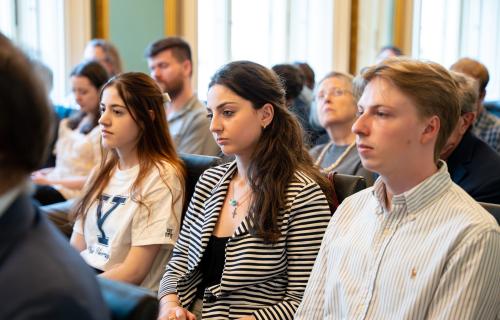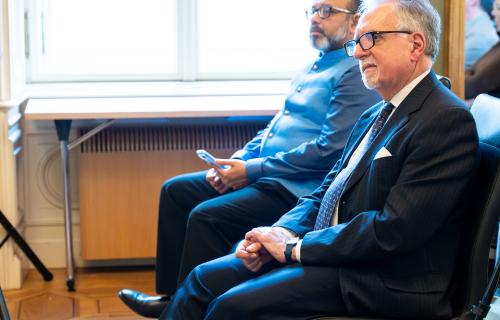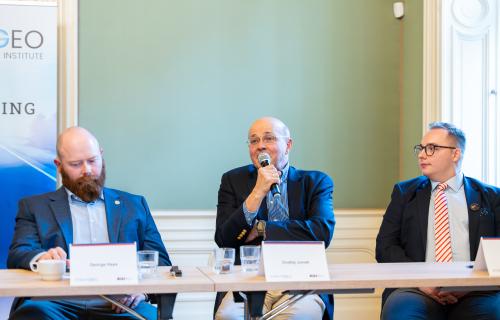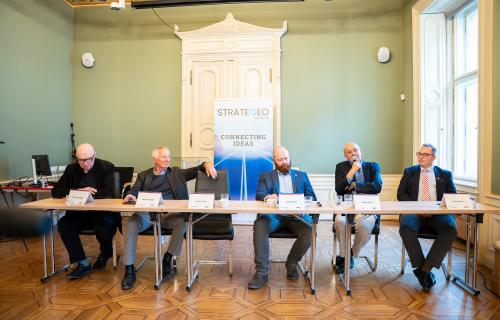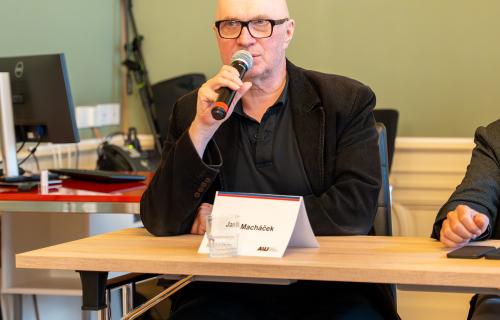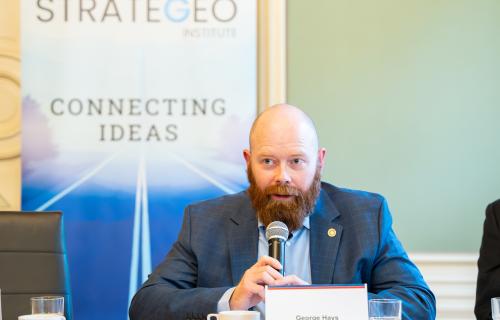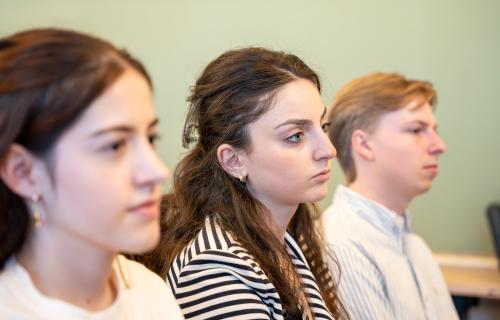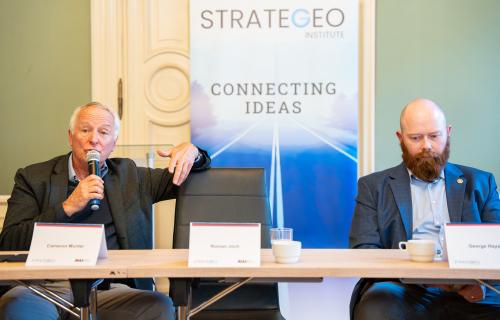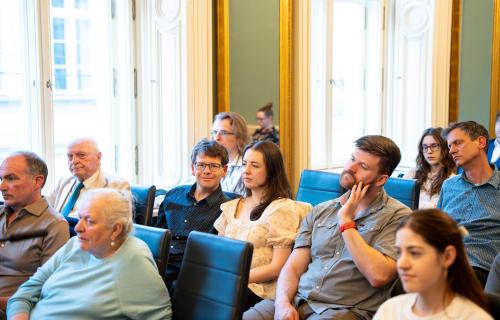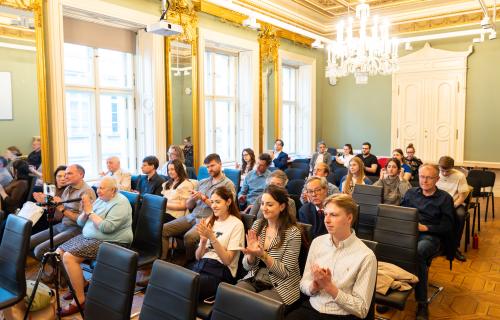On April 15, the Anglo-American University (AAU), in collaboration with the Strategeo Institute, hosted a compelling public debate as part of its 2025 series, this time focusing on the future of transatlantic relations.
The event gathered distinguished panelists and a diverse audience to explore the current state of cooperation between Europe and the United States. Moderated by Jan Macháček, the debate examined key themes including NATO and defense, transatlantic cooperation in the context of the war in Ukraine, trade and economic relations, and the shared values underpinning the Atlantic alliance.
Trade, Protectionism, and Globalization
The discussion opened with the topic of trade and economic relations, posing the question: are we entering a new era of protectionism, trade wars, and tariffs, with globalization in retreat?
Former American diplomat and academic Amb. Cameron Munter remarked:
“Trump isn’t a planner — he reacts until he meets resistance or a new idea. But tariffs are the one issue he’s been consistent on for 40 years. Even if his proposals lack coherence, tariffs are here to stay. And we haven't yet seen the full extent of their impact.”
Dr. George Hays, lecturer at AAU, offered a different perspective:
“There’s more rationale behind Trump’s actions than it may seem. First, he’s fulfilling a campaign promise — he can point to it and say, ‘You asked for this, and I delivered.’ Second, he enjoys using power unilaterally, without many constraints. He likes to act decisively, to make the world react.”
Roman Joch, Director of the Civic Institute, emphasized strategic considerations:
“In certain situations, tariffs and embargoes may be justified — especially for defense purposes. It doesn’t make sense to rely on potential adversaries for critical goods like medicine or advanced technologies. The U.S. doesn’t need to be fully self-sufficient, but it should trade with friendly or neutral nations. Broad tariff wars, however, are economically unwise, with a few exceptions like Russia, North Korea, and Belarus.”
Drake Dewey, an AAU alumnus, added a more critical perspective:
“As Cameron said, Democrats have no ideas, Republicans have no balls. We will see if that changes. These 90 days will serve as an experiment to gauge public response. But ultimately, I believe the outcome will be damaging for both America and the world. Trump hasn't learned from past mistakes — and we’ll see the consequences.”
NATO, Defense, and Strategic Uncertainty
The conversation then shifted to the state of NATO, its eastern flank, and the significance of defense spending. Moderator Jan Macháček emphasized that NATO should not be reduced merely to budget percentages, and raised the question of whether President Trump would attend the NATO Summit in Munich this June.
Amb. Cameron Munter agreed, noting:
“NATO isn’t just about tanks and aircraft. It’s about faith. Article 5 is not a legal guarantee — it’s a belief. I’ve served alongside Danish and Italian soldiers in Iraq and Afghanistan. If I were Estonian today, I’d be deeply concerned. The belief in NATO’s collective security has already eroded. NATO is a dinosaur — slow to adapt — and its future depends on whether it can transform into an alliance fit for this era, particularly when the U.S. president questions the value of allies.”
Roman Joch addressed the shifting nuclear landscape in Europe:
“Currently, only the UK and France possess nuclear deterrents in Europe. I believe that won’t remain the case. There is growing consensus in Poland — across the political spectrum — that the country will need its own nuclear capabilities. This shift may ultimately strengthen Europe’s security.”
Dr. George Hays delivered a striking historical reflection:
“NATO’s original mission was to keep the Germans down, the Americans in, and the Russians out. Today, the Americans are leaving, the Germans are rising, and the Russians are knocking. The credibility of Article 5 as a psychological weapon is crumbling — not only among Europeans, but among potential adversaries like Russia. When a U.S. president suggests conditional support for allies or blames Ukraine for being invaded, it undermines the core of collective defense — and increases the risk that Article 5 will be tested.”
Drake Dewey concluded with a sobering thought:
“In the end, I believe Europe will take the lead. The U.S. Freedom House Index has dropped nearly 20 points since 2014, now aligning with countries like Panama or Argentina. Two years after that decline began, Trump was elected. I hope this is his final term — and that stability can return — but the future remains uncertain. As Reagan said: ‘The future does not belong to the fainthearted. It belongs to the brave.’ We’ll see who proves brave enough.”
To watch the full debate, see the video recording on the Strategeo website.
